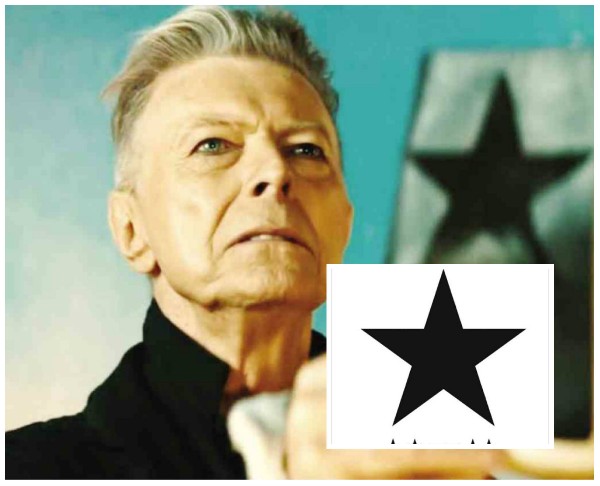It isn’t easy to make heads or tails out of David Bowie’s provocative lyrics in his 25th (and final) album, “Blackstar,” but their dark and brooding allure beautifully complements the seven-track repertoire’s ornate melodies.
In what could be one of 2016’s best albums, Bowie’s deeply personal musings and intimations of mortality are stitched together by songs that gain more clarity and greater thematic resonance in the context of his heretofore little-discussed battle with the Big C. The album was released on the Thin White Duke’s 69th birthday last Jan. 8.
When we got our copy of the recording on Jan. 9, we burned the midnight oil trying to string together the album’s odd elements, which only made more sense when we learned about his untimely passing the following day, when Bowie succumbed to liver cancer.
While the album is indubitably noirish, evocative and unsettling, it is far from bleak and tragedian. In the poignant third track, “Lazarus,” Bowie likens his dire situation to the freedom a bluebird enjoys as he embraces his fate with optimism: “Look up here, I’m in heaven/ I’ve got scars that can’t be seen/ I’ve got drama (that) can’t be stolen/ Everybody knows me now.”
We were fresh out of grade school in the ’80s when we were introduced to Bowie’s music via “Under Pressure,” where his understated crooning boosted Freddie Mercury’s soaring vocals.
Thereafter, we wanted to know more about Ziggy Stardust’s alter ego—from his scintillating forays into films (Nicolas Roeg’s “The Man Who Fell to Earth”), to his unabashed theatricality in music (“Life on Mars,” “Ziggy Stardust,” “Space Oddity”).
His latest album is a fitting valedictory, because it has allowed Bowie to revisit his experimental roots—with compelling results! If you’re partial to melodies you can predict, the seven-song album isn’t for you.
But if you want tunes with catchy hooks that grow on you, the collection is a must-have—because its nocturnal gloss and unconventional fusion of punk, pop, EDM (electronic dance music) and jazz will keep you thinking (check out the title track’s elegant, 10-minute sprawl) and grooving (“’Tis a Pity She Was a Whore”) at the same time!
The pounding “I Can’t Give Everything Away” cleverly incorporates a sampling of “A Career in a New Town,” from Bowie’s groundbreaking 1977 album, “Low,” the first of the iconic performer’s so-called “Berlin Trilogy.”
These days, Bowie’s music may not be as ubiquitous as those churned out by Justin Bieber, The Weeknd and 5 Seconds of Summer, but it’s hard to imagine any of those young musical comers to approximate the inventiveness of Bowie in tracks like “Girl Loves Me.”
If you don’t understand what Bowie is singing about in “Girl”—don’t worry, it’s his “otherworldly” way of expressing himself about love and romance, sung in two unique “counterculture” languages: in Nadsat, the language used in Anthony Burgess’ “A Clockwork Orange,” and Polari, a gay slang that was popular in dance clubs in ’70s London. Can anybody be more imaginative than that?
